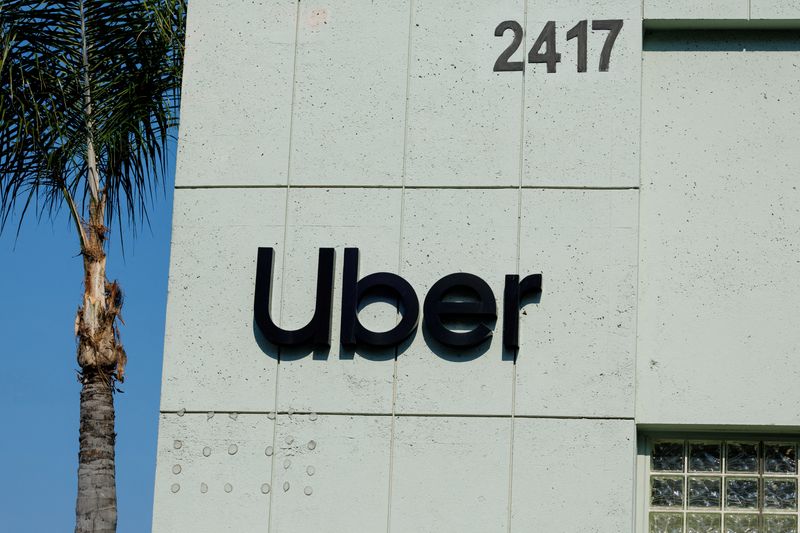Uber beats lawsuit alleging race bias in driver ratings
2024.06.24 14:36
By Daniel Wiessner
(Reuters) – A U.S. appeals court on Monday tossed out a proposed class action claiming Uber Technologies (NYSE:)’ policy of terminating drivers with low passenger ratings is racially discriminatory.
The San Francisco-based 9th U.S. Circuit Court of Appeals said Thomas Liu, a driver who filed the 2020 lawsuit, had not provided any evidence showing that Uber kicked non-white drivers off its app at a higher rate than white drivers with low ratings.
Liu’s lawyers had argued that statistical evidence backing up their claims would only be available if the case were allowed to proceed to discovery, when plaintiffs can seek documents and testimony from defendants. But a three-judge 9th Circuit panel said Liu had failed to provide anything beyond speculation to buttress his claim that Uber’s system is discriminatory.
Uber did not immediately respond to a request for comment.
Shannon Liss-Riordan, a lawyer for Liu, said she was “deeply disappointed and concerned” about the ruling and would likely ask the court to reconsider it.
Uber asks passengers to rate drivers on a scale of one to five and deactivates drivers who fail to maintain high scores. Liu, who is Asian-American, said in the lawsuit that he was deactivated after his rating fell below 4.6.
Liu claims passengers are more likely to give poor ratings to non-white drivers, and Uber’s use of the rating system violates Title VII of the Civil Rights Act of 1964 and California anti-discrimination law.
U.S. District Judge Vince Chhabria in San Francisco granted Uber’s motion to dismiss the case in 2022, saying there was no plausible allegation of a statistical disparity among drivers of different races. He said a survey by Liu’s lawyers of thousands of Uber drivers that showed a disparity was flawed.
The 9th Circuit on Monday agreed, saying the survey had numerous flaws and said nothing about the racial composition of the overall population of Uber drivers.

Liu was backed by the U.S. Equal Employment Opportunity Commission, which enforces Title VII.
The agency said in a friend-of-the-court brief that Liu cited research showing that customer ratings are likely to be influenced by bias, including for Uber drivers and other gig workers. That coupled with the survey by Liu’s lawyers was enough to establish a plausible case, the commission said.








